BMW 5 Series Saloon vs Hyundai Tucson - Differences and prices compared
Compare performance (727 HP vs 288 HP), boot space and price (50800 £ vs 20900 £) at a glance. Find out which car is the better choice for you – BMW 5 Series Saloon or Hyundai Tucson?
Costs and Efficiency:
Price and efficiency are key factors when choosing a car – and this is often where the real differences emerge.
Hyundai Tucson has a decisively advantage in terms of price – it starts at 20900 £, while the BMW 5 Series Saloon costs 50800 £. That’s a price difference of around 29931 £.
Fuel consumption also shows a difference: BMW 5 Series Saloon manages with 2.10 L and is therefore evident more efficient than the Hyundai Tucson with 2.70 L. The difference is about 0.60 L per 100 km.
As for range, the BMW 5 Series Saloon performs clearly perceptible better – achieving up to 105 km, about 35 km more than the Hyundai Tucson.
Engine and Performance:
Under the bonnet, it becomes clear which model is tuned for sportiness and which one takes the lead when you hit the accelerator.
When it comes to engine power, the BMW 5 Series Saloon has a clearly edge – offering 727 HP compared to 288 HP. That’s roughly 439 HP more horsepower.
In acceleration from 0 to 100 km/h, the BMW 5 Series Saloon is decisively quicker – completing the sprint in 3.50 s, while the Hyundai Tucson takes 7.50 s. That’s about 4 s faster.
In terms of top speed, the BMW 5 Series Saloon performs slightly better – reaching 250 km/h, while the Hyundai Tucson tops out at 204 km/h. The difference is around 46 km/h.
There’s also a difference in torque: BMW 5 Series Saloon pulls decisively stronger with 1000 Nm compared to 379 Nm. That’s about 621 Nm difference.
Space and Everyday Use:
Cabin size, boot volume and payload all play a role in everyday practicality. Here, comfort and flexibility make the difference.
Both vehicles offer seating for 5 people.
In curb weight, Hyundai Tucson is to a small extent lighter – 1542 kg compared to 1800 kg. The difference is around 258 kg.
In terms of boot space, the Hyundai Tucson offers slightly more room – 620 L compared to 520 L. That’s a difference of about 100 L.
When it comes to payload, BMW 5 Series Saloon slight takes the win – 600 kg compared to 545 kg. That’s a difference of about 55 kg.
Who comes out on top?
Overall, the BMW 5 Series Saloon shows itself to be outperforms in nearly all aspects and secures the title of DriveDuel Champion.
It convinces with the more balanced overall package and proves to be the more versatile choice for everyday use.
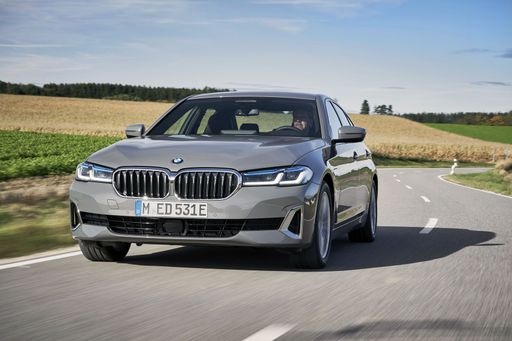
BMW 5 Series Saloon
Costs and Consumption
View detailed analysis
Engine and Performance
View detailed analysis
Dimensions and Body
View detailed analysis
BMW 5 Series Saloon
The BMW 5 Series Saloon blends executive poise with a driver's instinct, delivering a supple, refined cabin and a chassis that prefers composed authority over bravado. For buyers who want a grown-up commuter that still enjoys a twisty road, it’s the kind of car that keeps your colleagues impressed and your weekend grin intact.
details
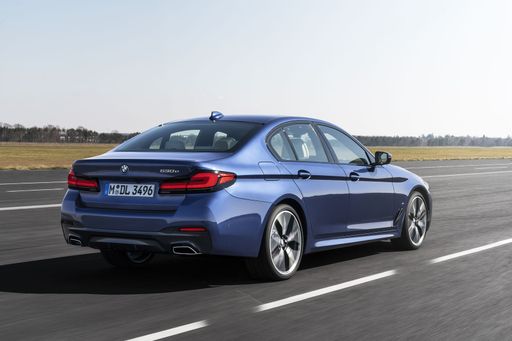
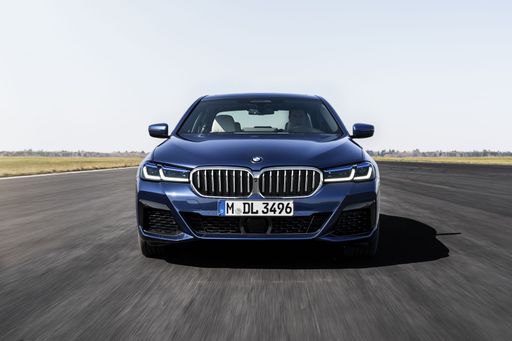
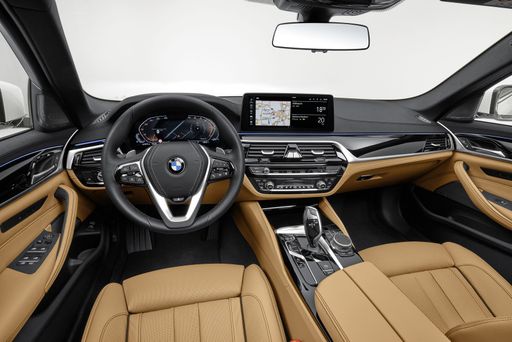
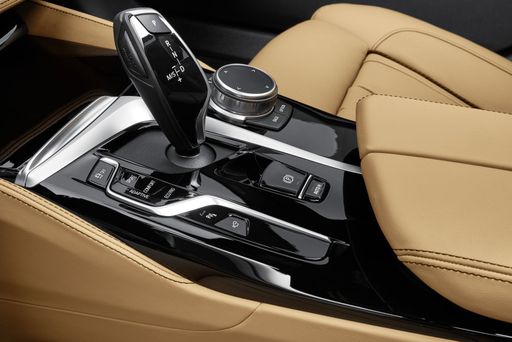
Hyundai Tucson
Hyundai Tucson marries bold, sculpted looks with a clever, roomy cabin that feels smarter than its price tag suggests. It's composed on the road, easy to live with day-to-day, and a sensible choice for buyers who want SUV style without the showroom theatrics.
details





|

|
|
|
|
Costs and Consumption |
|
|---|---|
|
Price
50800 - 123800 £
|
Price
20900 - 47900 £
|
|
Consumption L/100km
2.1 - 5.8 L
|
Consumption L/100km
2.7 - 7.6 L
|
|
Consumption kWh/100km
-
|
Consumption kWh/100km
-
|
|
Electric Range
68 - 105 km
|
Electric Range
63 - 70 km
|
|
Battery Capacity
18.6 - 19.4 kWh
|
Battery Capacity
-
|
|
co2
48 - 152 g/km
|
co2
62 - 172 g/km
|
|
Fuel tank capacity
60 L
|
Fuel tank capacity
52 - 54 L
|
Dimensions and Body |
|
|---|---|
|
Body Type
Sedan
|
Body Type
SUV
|
|
Seats
5
|
Seats
5
|
|
Doors
4
|
Doors
5
|
|
Curb weight
1800 - 2510 kg
|
Curb weight
1542 - 1893 kg
|
|
Trunk capacity
466 - 520 L
|
Trunk capacity
546 - 620 L
|
|
Length
5060 - 5096 mm
|
Length
4525 - 4535 mm
|
|
Width
1900 - 1970 mm
|
Width
1865 mm
|
|
Height
1510 - 1515 mm
|
Height
1650 mm
|
|
Max trunk capacity
-
|
Max trunk capacity
1795 - 1799 L
|
|
Payload
430 - 600 kg
|
Payload
518 - 545 kg
|
Engine and Performance |
|
|---|---|
|
Engine Type
Diesel MHEV, Petrol MHEV, Plugin Hybrid
|
Engine Type
Petrol, Full Hybrid, Plugin Hybrid, Diesel MHEV
|
|
Transmission
Automatic
|
Transmission
Manuel, Automatic
|
|
Transmission Detail
Automatic Gearbox
|
Transmission Detail
Manual Gearbox, Dual-Clutch Automatic, Automatic Gearbox
|
|
Drive Type
Rear-Wheel Drive, All-Wheel Drive
|
Drive Type
Front-Wheel Drive, All-Wheel Drive
|
|
Power HP
197 - 727 HP
|
Power HP
136 - 288 HP
|
|
Acceleration 0-100km/h
3.5 - 7.5 s
|
Acceleration 0-100km/h
7.5 - 11.6 s
|
|
Max Speed
225 - 250 km/h
|
Max Speed
196 - 204 km/h
|
|
Torque
330 - 1000 Nm
|
Torque
250 - 379 Nm
|
|
Number of Cylinders
4 - 8
|
Number of Cylinders
4
|
|
Power kW
145 - 535 kW
|
Power kW
100 - 212 kW
|
|
Engine capacity
1995 - 4395 cm3
|
Engine capacity
1598 cm3
|
General |
|
|---|---|
|
Model Year
2023 - 2025
|
Model Year
2025
|
|
CO2 Efficiency Class
D, E, B, C
|
CO2 Efficiency Class
F, D, E, B
|
|
Brand
BMW
|
Brand
Hyundai
|
What drivetrain options does the BMW 5 Series Saloon have?
Available configurations include Rear-Wheel Drive or All-Wheel Drive.
The prices and data displayed are estimates based on German list prices and may vary by country. This information is not legally binding.
